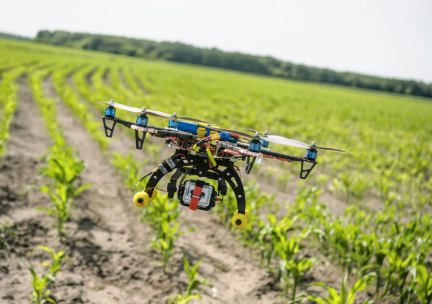How AI Is Transforming Healthcare: Innovations to Look for
The integration of artificial intelligence in healthcare is reshaping traditional practices. Innovations in diagnostic accuracy, administrative efficiency, and personalized treatment plans are at the forefront of this transformation. As machine learning algorithms process vast amounts of data, they uncover patterns that enhance patient outcomes. Moreover, advancements in surgical techniques promise to redefine precision in the operating room. What implications do these developments hold for the future of patient care and the healthcare industry as a whole?
Enhancing Diagnostic Accuracy With AI
As healthcare systems increasingly adopt advanced technologies, the integration of artificial intelligence (AI) has emerged as a pivotal force in enhancing diagnostic accuracy.
Through machine learning algorithms, vast datasets are analyzed, enabling predictive analytics to identify patterns and potential health issues earlier.
This transformative approach not only improves clinical outcomes but also empowers patients by fostering informed health decisions, ultimately promoting greater autonomy and wellness.
Streamlining Administrative Processes
While healthcare professionals focus on patient care, the administrative side of healthcare often presents significant challenges that can detract from overall efficiency.
AI technologies are revolutionizing this landscape through automated scheduling and streamlined claims management processes. By reducing manual errors and expediting workflows, AI allows healthcare providers to allocate more time and resources to patient care, thereby enhancing overall service quality.
Read more: Exploring the Future of Autonomous Drones in Delivery Services
Personalized Treatment Plans Powered by AI
By harnessing the power of artificial intelligence, healthcare providers can create highly personalized treatment plans that address the unique needs of each patient.
Utilizing predictive analytics, AI identifies patterns in patient data, enabling treatment optimization tailored to individual responses.
This approach not only enhances the effectiveness of therapies but also empowers patients, fostering a sense of autonomy in their health management journey.
The Future of AI-Assisted Surgery
The integration of artificial intelligence in surgical procedures is poised to revolutionize the landscape of operating rooms, enhancing precision and outcomes.
Robotic advancements will enable surgeons to perform complex tasks with unparalleled accuracy, minimizing risks and recovery times.
As AI continues to evolve, the potential for improved surgical precision will not only redefine patient care but also empower healthcare professionals with innovative tools for success.
Conclusion
As the dawn of AI illuminates the healthcare landscape, its transformative power unfolds like a tapestry woven with threads of innovation. Enhanced diagnostic accuracy, streamlined administrative processes, and personalized treatment plans are just the beginning. The integration of AI promises a future where healthcare is not only more efficient but also more attuned to individual needs. As these advancements take root, they will redefine patient care, heralding an era of unprecedented possibilities in the medical field.







